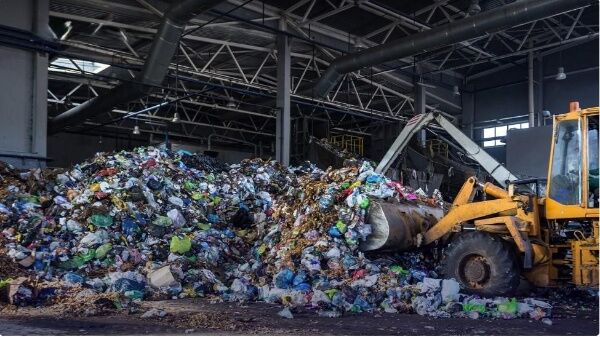Sustainable solutions: Bangkok’s waste-to-energy plants

To combat the Thai capital’s mounting garbage crisis, the Bangkok Metropolitan Administration (BMA) is rolling out two cutting-edge waste-to-energy plants to revolutionise waste management by 2026.
BMA permanent secretary Wanthanee Wattana voiced unwavering confidence in the timely completion of these game-changing facilities.
Wattana revealed that construction is well underway at the Nong Khaem and On Nut garbage disposal centres, with Privy Councillor Palakorn Suwanrath spearheading the ceremonial groundwork for one of these eco-innovative power plants on March 12.
“With Bangkok’s daily garbage surpassing the 1,000-tonne mark, the urgency for sustainable solutions is paramount.”
She underscored that the existing Nong Khaem plant, operational since March 23, 2016, under the tenure of former governor Sukhumbhand Paribatra, is struggling to cope with the escalating waste volume.
“The new plants are not just a necessity, they signify a pivotal step towards a greener, cleaner Bangkok.”
With the capacity to process 500 tonnes of waste per day each, these state-of-the-art facilities are poised to alleviate the strain on the city’s waste management infrastructure, paving the way for a more environmentally conscious future, reported The Nation.
ORIGINAL STORY: Bangkok trash talk: BMA sparks a green revolution with electric trucks and waste-to-energy wonders
The Bangkok Metropolitan Administration (BMA) is making strides to modernise waste management in the city, with plans to introduce electric garbage trucks and construct two additional waste-to-energy (WTE) plants. Deputy permanent secretary of the BMA, Chatree Wattanakajorn, announced this progressive move yesterday.
The BMA has successfully negotiated a contract permitting a private firm to construct the WTE plants at waste incineration locations in the Nong Khaem district and the On Nut area of the Phra Khanong district. The organisation anticipates the commencement of construction in the early part of next year, with completion slated for the end of 2026.
Chatree explained that the project will follow a build-operate-transport model. The successful bidder will be granted a 20-year concession to manage the plants, after which the facilities will revert to BMA control.
Furthermore, the BMA has secured budget allocation for the current fiscal year to construct another incineration plant in Nong Khaem. This facility will have the capacity to generate between 21 and 24 megawatts of electricity, 19 megawatts of which will be sold.
The Ministry of the Interior has approved the project, with the public invited to submit bids. The core objective of the project is to significantly reduce the volume of garbage sent to landfills. Currently, 4.1 tonnes (approximately 45% of total garbage collected) is deposited daily. The aim is to reduce this figure to 1.7 tonnes, or 15% of total garbage collected each day.
The BMA also has plans in place to boost the capacity of the WTE plants. At present, these facilities manage 500 tonnes of garbage daily, roughly 5% of the total collected. The goal is to increase this capacity to 28%, reported Bangkok Post.
The deputy secretary disclosed that the BMA is liaising with the Environmental Research Institute of Chulalongkorn University to privatise garbage collection and waste management at the On Nut and Nong Khaem incineration sites. This must be achieved with the use of diesel-free vehicles, ensuring no pollution in the surrounding areas.
The BMA’s environmental commitment extends to replacing diesel garbage trucks with electric vehicles (EVs). This year, 842 EV trucks are set to be introduced, followed by a further 721 in 2025. This will result in a total of 1,563 EV garbage trucks operating in Bangkok.
Latest Thailand News
Follow The Thaiger on Google News:


























